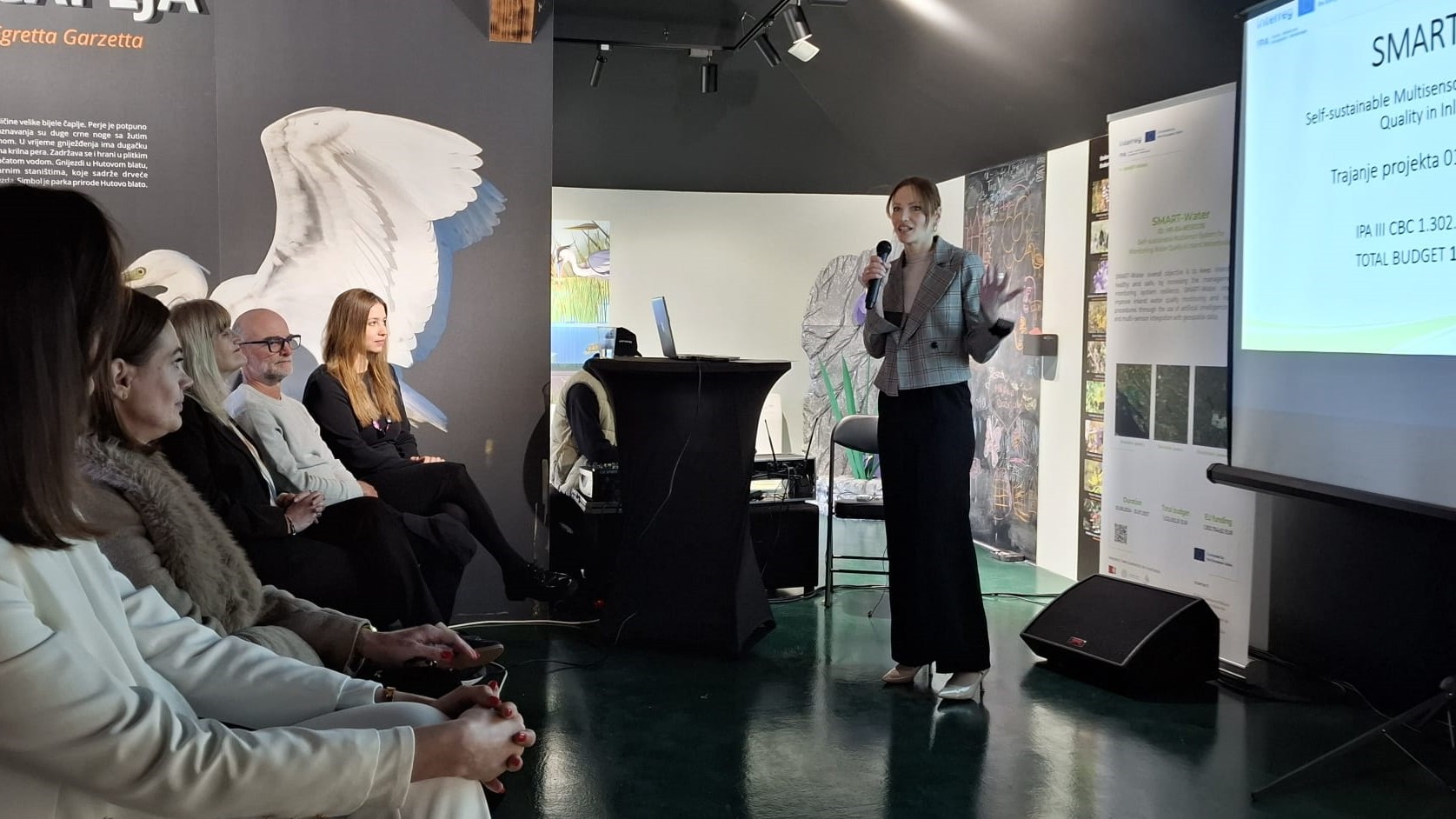At the core of this cross-border effort are three major lakes: Lake Vrana in Croatia, Lake Deransko in Bosnia and Herzegovina, and Lake Skadar in Montenegro. The project aims to upgrade the way these vital freshwater bodies are monitored, moving away from labour-intensive fieldwork to high-tech, real-time observation powered by AI and remote sensing technologies.
Thanks to satellites and state-of-the-art sensors, scientists can now gather continuous streams of environmental data, which are then analysed by AI algorithms. This allows for swift and accurate assessments of water quality and provides the ability to respond quickly to any signs of ecological disruption.
Shared Tools, Smarter Insights
During a recent field visit to Hutovo Blato, project partners rolled up their sleeves and conducted a joint sampling campaign. Using multiparameter probes, water samples were analysed on site. The data collected will now feed into the calibration of satellite imagery—paving the way for ongoing, automated water quality monitoring with minimal need for boots on the ground.
“One of the cornerstones of SMART-Water is the development of shared tools and resources that allow for more efficient water quality management,” explains Dr Neven Cukrov, project coordinator from the IRB’s Division for Marine and Environmental Research. “We’re currently working on integrating multiple data sources into a single web-based GIS platform. This will give decision-makers access to timely and precise geospatial information—absolutely essential for effective water resource governance.”
Educating and Empowering Local Communities
But it’s not just experts who stand to benefit. The SMART-Water platform is also designed to raise public awareness and encourage community involvement in water stewardship.
“We want to shine a light on how climate change is impacting our water systems,” says Cukrov. “With shifting temperatures, changes in rainfall patterns, and increasingly frequent extreme weather events, we must rethink the way we manage water. This is vital if we want to reduce negative impacts on aquatic biodiversity and safeguard the quality of life for local communities.”
By delivering more reliable data, cutting research costs, and strengthening cross-border cooperation, SMART-Water is setting a new standard for environmental monitoring in the region. The project is expected to make a significant contribution to lake conservation and boost the scientific and technical capacity of all participating countries.
A Vision for the Future
With a total value of €1.5 million, SMART-Water is funded under the Interreg IPA Cross-Border Cooperation Programme Croatia–Bosnia and Herzegovina–Montenegro 2021–2027. Project partners include Hutovo Blato Nature Park, the Ruđer Bošković Institute, the University of Zadar, Montenegro’s Institute of Hydrometeorology and Seismology, and the Environmental Protection Agency of Montenegro.
By blending on-the-ground research with data from space, SMART-Water is laying the groundwork for near real-time, automated monitoring of freshwater ecosystems. It’s a powerful reminder that when science, technology, and collaboration come together, the future of our natural resources looks that much brighter.




